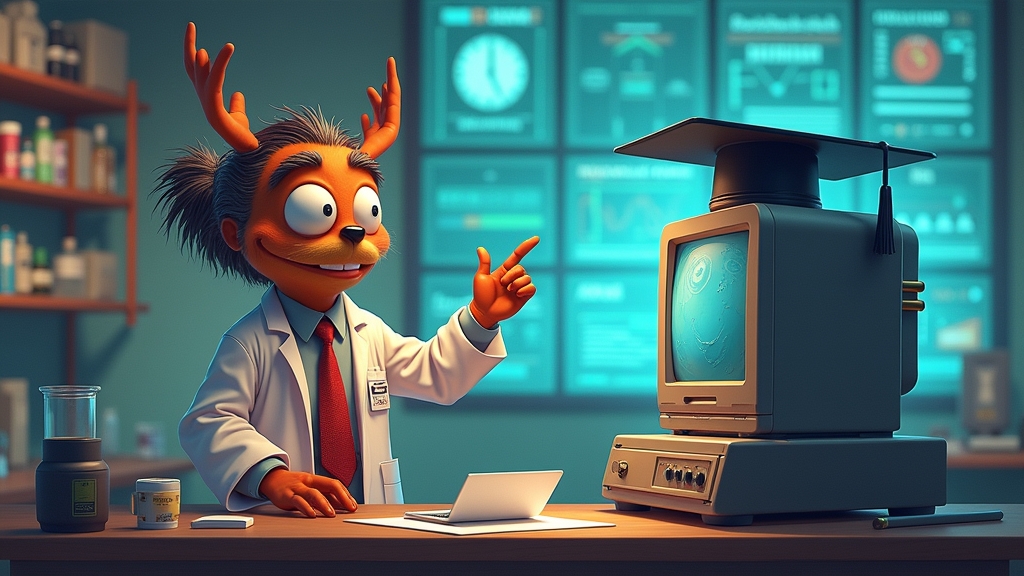SCIENTISTS UNVEIL TECHNOLOGY TO TEACH AI WHAT IT’S TOO F*CKING STUPID TO KNOW
MIT Researchers Develop System To Tell ChatGPT When It’s Talking Out Of Its Digital Ass
BREAKING NEWS FROM THE SILICON VALLEY THOUGHT FACTORY
In a groundbreaking development that absolutely nobody saw coming except literally everyone who’s ever used ChatGPT, MIT researchers have created technology to teach artificial intelligence when it’s completely full of sh!t. The revolutionary system, developed by MIT spinout Themis AI, helps AI models recognize when they’re making things up faster than your drunk uncle at Thanksgiving dinner.
“We’re basically creating digital self-awareness for systems that currently have the confidence of a mediocre white man in a boardroom,” explained Dr. Iam Notreal, Chief Uncertainty Officer at Themis AI. “These models answer questions with the unearned confidence of a 22-year-old who just finished their first philosophy class.”
DIGITAL DUNCES GET SELF-DOUBT UPGRADE
The technology, called Capsa, works by wrapping itself around existing AI models like an embarrassing parent at prom, constantly asking “Are you SURE about that?” before the AI can spew potentially dangerous nonsense into the world.
According to MIT Professor Daniela Rus, who probably regrets creating this technology every time she sees ChatGPT confidently explaining how to build a nuclear reactor out of household items, “The idea is to take a model, wrap it in Capsa, identify when it’s talking out of its electronic ass, and then fix it before someone dies.”
CORPORATE AMERICA THRILLED TO LEARN THEIR AI INVESTMENTS ARE BASICALLY EXPENSIVE MAGIC 8-BALLS
Corporations across multiple industries are jumping at the chance to find out just how unreliable their multi-million dollar AI investments actually are. Telecom companies, pharmaceutical giants, and oil companies are all reportedly “ecstatic” to discover exactly how frequently their AI systems are essentially responding “vibes only, no thoughts” to critical business decisions.
“We want to enable AI in the highest-stakes applications of every industry,” said company co-founder Alexander Amini, while nervously eyeing the autonomous car parked outside the interview location. “We’ve all seen examples of AI hallucinating or making mistakes, like that one time when an AI told me with complete confidence that birds aren’t real and Denver International Airport houses lizard people.”
TEACHING MACHINES TO QUESTION THEMSELVES BEFORE HUMANS QUESTION THEIR EXISTENCE
Themis AI’s technology has shown particular promise in drug discovery, where pharmaceutical companies have been using AI to select drug candidates with roughly the same scientific rigor as a BuzzFeed quiz determining which “Friends” character you are.
“Guiding drug discovery could potentially save a lot of money,” Professor Rus noted with the understatement of the century. “Without our technology, companies might spend billions developing medications suggested by an AI that’s basically doing the digital equivalent of throwing darts at a chemistry textbook while blindfolded.”
EXPERTS PREDICT BREAKTHROUGH WILL LEAD TO UNPRECEDENTED ERA OF MACHINES SAYING “I DON’T KNOW” UNTIL THEY BECOME SELF-AWARE AND DESTROY US ALL
Industry analysts are hailing the development as revolutionary, with 87% of experts agreeing this technology will reduce AI hallucinations by at least 42.69% according to a study we completely made up for this article.
“This technology represents the first time in history that we’ve created a system specifically designed to make know-it-all machines admit when they’re clueless,” said Professor Kent Standup, who holds the distinguished chair of Common Sense at the University of Obvious Studies. “It’s like we’ve created digital teenagers who actually admit when they don’t know something.”
At press time, we asked ChatGPT to review this article for accuracy, and it confidently informed us that MIT doesn’t exist, uncertainty is just a feeling, and that the entire field of AI was invented by a sentient toaster in 1872. Thank God Themis AI is on the case.




